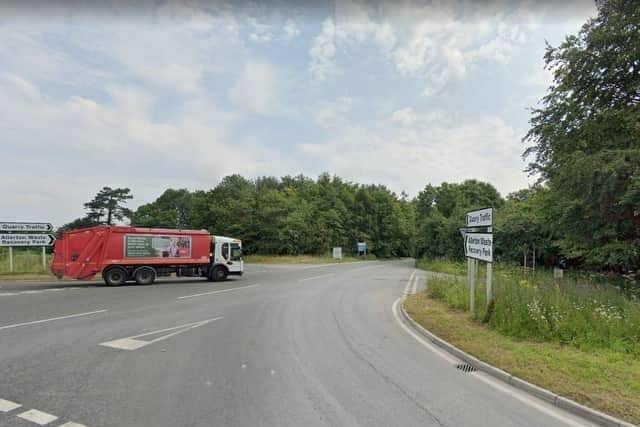Tax-payer funded waste incinerator in Yorkshire has 'mixed performance'
A report has revealed how Allerton Park Waste Recovery plant, which takes 220,000 tonnes of waste collected by councils in York and North Yorkshire and 50,000 tonnes of business waste annually, is significantly exceeding its target for diverting waste from landfill, achieving almost 90 per cent.
However, it is recycling and composting just over one per cent of the waste, against a target of five per cent.
Advertisement
Hide AdAdvertisement
Hide AdNorth Yorkshire and City of York councils awarded a contract to private company AmeyCespa to create the facility in 2014 following a high-profile battle with residents of villages surrounding the plant, such as Marton cum Grafton, near Boroughbridge.


Last year councillors raised concerns over the plant’s recycling performance after it emerged it had never met its recycling targets, leading the councils to levy £653,000 in performance deductions for the first three years of its operations.
An officer’s report to a meeting of the county council’s transport, economy and evironment scrutiny committee next Thursday shows the plant’s recycling performance has marginally worsened during the last year.
The report states issues with the mechanical treatment equipment meant sometimes the plant had to be run in by-pass mode, which meant recyclates were not extracted. It also says following maintenance works earlier this year the mechanical treatment performance has significantly improved, with Amey forecasting recycling performance to rise to almost half the targeted proportion.
Advertisement
Hide AdAdvertisement
Hide AdHowever, the amount of unplanned downtime at the energy from waste plant significantly improved this year, falling from 61 days to 29, which allowed more waste to be processed. The report states the latest figures show the best year to date for landfill diversion and energy from waste. It concludes further opportunities are being explored with the councils, Amey and Yorwaste seek “to optimise the types of waste delivered to the plant” to secure continued performance improvements.
The county council’s executive member for open to business, Councillor Derek Bastiman, said while the recycling target remained well below what was wanted, the lack of improvement this year had been largely due to unforeseen mechanical issues. He said the energy from waste scheme had proven to be a good investment by the councils.
